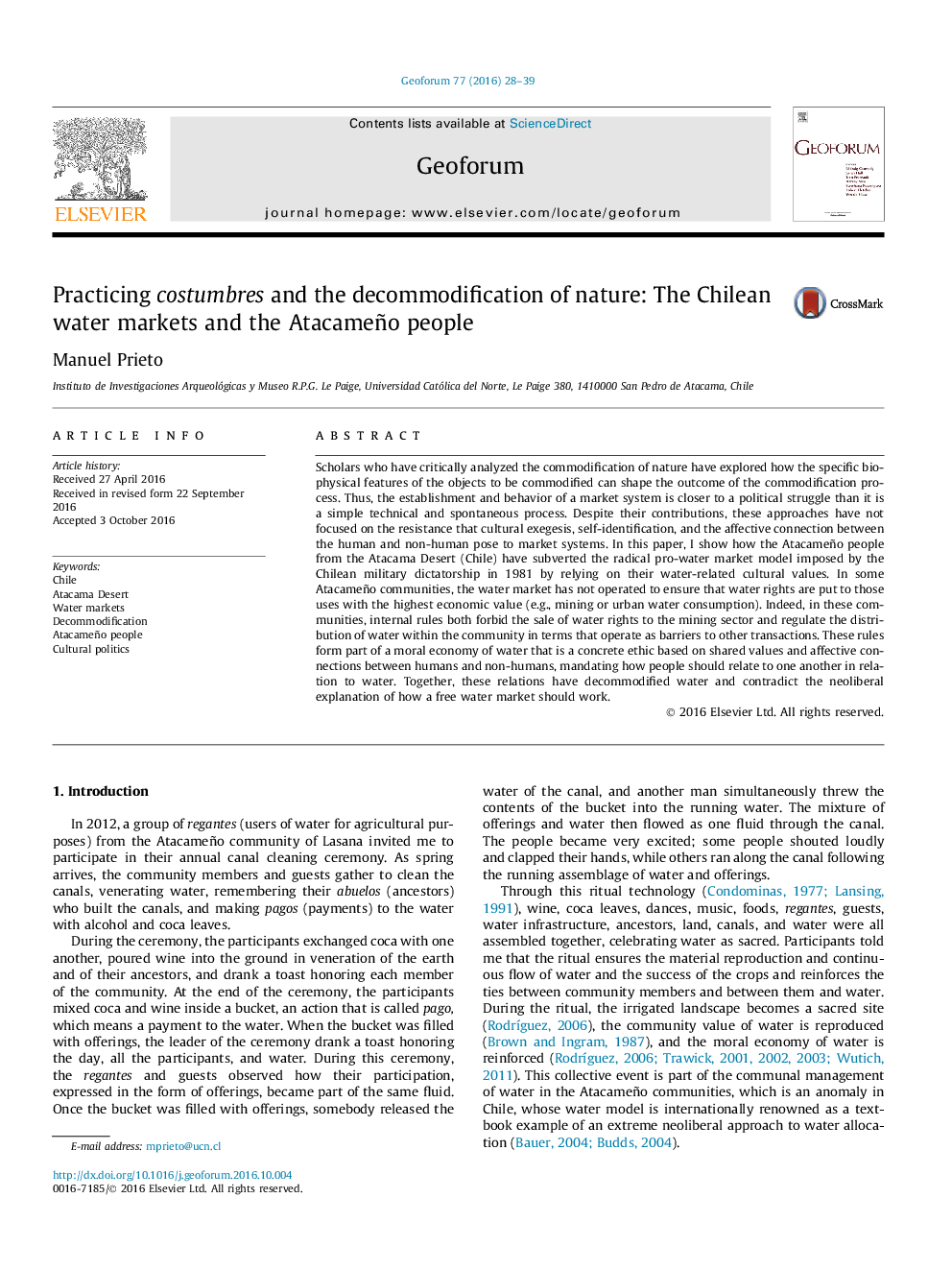| Article ID | Journal | Published Year | Pages | File Type |
|---|---|---|---|---|
| 5073528 | Geoforum | 2016 | 12 Pages |
Abstract
Scholars who have critically analyzed the commodification of nature have explored how the specific biophysical features of the objects to be commodified can shape the outcome of the commodification process. Thus, the establishment and behavior of a market system is closer to a political struggle than it is a simple technical and spontaneous process. Despite their contributions, these approaches have not focused on the resistance that cultural exegesis, self-identification, and the affective connection between the human and non-human pose to market systems. In this paper, I show how the Atacameño people from the Atacama Desert (Chile) have subverted the radical pro-water market model imposed by the Chilean military dictatorship in 1981 by relying on their water-related cultural values. In some Atacameño communities, the water market has not operated to ensure that water rights are put to those uses with the highest economic value (e.g., mining or urban water consumption). Indeed, in these communities, internal rules both forbid the sale of water rights to the mining sector and regulate the distribution of water within the community in terms that operate as barriers to other transactions. These rules form part of a moral economy of water that is a concrete ethic based on shared values and affective connections between humans and non-humans, mandating how people should relate to one another in relation to water. Together, these relations have decommodified water and contradict the neoliberal explanation of how a free water market should work.
Related Topics
Social Sciences and Humanities
Economics, Econometrics and Finance
Economics and Econometrics
Authors
Manuel Prieto,
